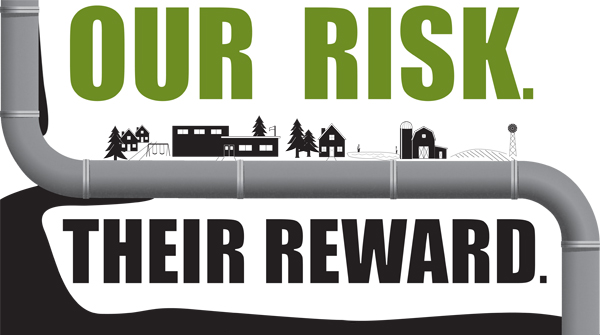What does the falling price of oil mean for the proposed $12-billion Energy East pipeline?
Jeff Rubin, the former chief economist at CIBC World Markets, says, “The first thing Canadians should recognize about the new world order for oil prices is that — contrary to what we’re being told by our federal government — the economy is no longer in dire need of any new pipelines. For that matter, it can live without the new rail terminals being built to move oil as well. Yesterday’s transportation bottlenecks aren’t relevant in today’s marketplace. At current prices there won’t be any massive expansion of [tar] sands production because those projects, which would produce some of the world’s most expensive crude, no longer make economic sense.”
He highlights, “Rather than oil flowing east through new pipelines, jobs and investment will be heading in that direction instead.”
Rubin notes that “the benchmark price for [tar] sands crude is already trading” in the $40 a barrel price range and describes “the recent spate of project cancellations by global oil giants — Total’s Joslyn mine, Shell’s at Pierre River, and Statoil’s Corner oil sands venture — [as] only the beginning.”
The economic reality is that these selling prices are below the break-even point of $60-$70 per barrel for the extraction of tar sands crude in Canada.
In early October, just around the time Saudi Arabia began to let global oil prices slide downward, Canada was exporting about 2.98 million barrels per day of crude to the United States. The Canadian Association of Petroleum Producers had said they expected oil production to reach 3.91 million barrels per day in 2015 and 6.44 million barrels per day by 2030. But Rubin says, “Rather than expanding production, the industry’s new economic imperative will be attempting to cut costs in a bid to maintain current output.”
And while Alberta, Saskatchewan and Newfoundland are losing revenue with the drop in the price of oil, the Ontario economy has benefited from it. Rubin says, “As the largest oil-consuming province in the country, lower oil prices put more money back into the pockets of Ontarians [nearly $5 billion this year], while also juicing the buying power of its most important trading partner. Ontario’s trade leverage with the U.S. is set to become even more meaningful as the [previously petro-inflated] Canadian dollar continues to slide along with the country’s rapidly fading oil prospects.”
The current price of oil would also mean an estimated $12 billion in savings for motorists across the country this year.
The global price of oil is dropping because Saudi Arabia, the world’s biggest exporter at about 6.9 million barrels per day, has a much lower break-even point and has both maintained its production levels and even cut its prices for crude shipments to the United States and Europe. Their goal is to retain or even gain market share to counter the challenge of more oil being produced in higher cost regions in the world, notably by U.S. fracked oil producers and tar sands operations in northern Alberta.
It remains to be seen what will happen with the price of oil this year and next.
A survey of 30 economists last month suggests the price of oil will continue to drop in the first half of 2015 but average US$74.00 by the end of the year and increase to US$80.30 in 2016. This would be accomplished in part by the current lower price of oil having forced smaller, high-cost U.S. and Canadian unconventional crude oil producers to slash investment and cut production levels. The U.S. Energy Information Administration expects crude prices to average US$65 a barrel in 2015 with the price of oil increasing in the latter half of this year only after domestic production levels have dropped.
It is expected that the (next) federal government will make its decision about the Energy East pipeline by May 2016. If approved, and not further delayed by court challenges or — by some miracle — the ramifications of a United Nations climate agreement in December 2015, the pipeline could be operational by late 2018. But it’s worth keeping an eye on the market to see what the imperative of profit means for this pipeline. After all, this is about our risk and their reward.



